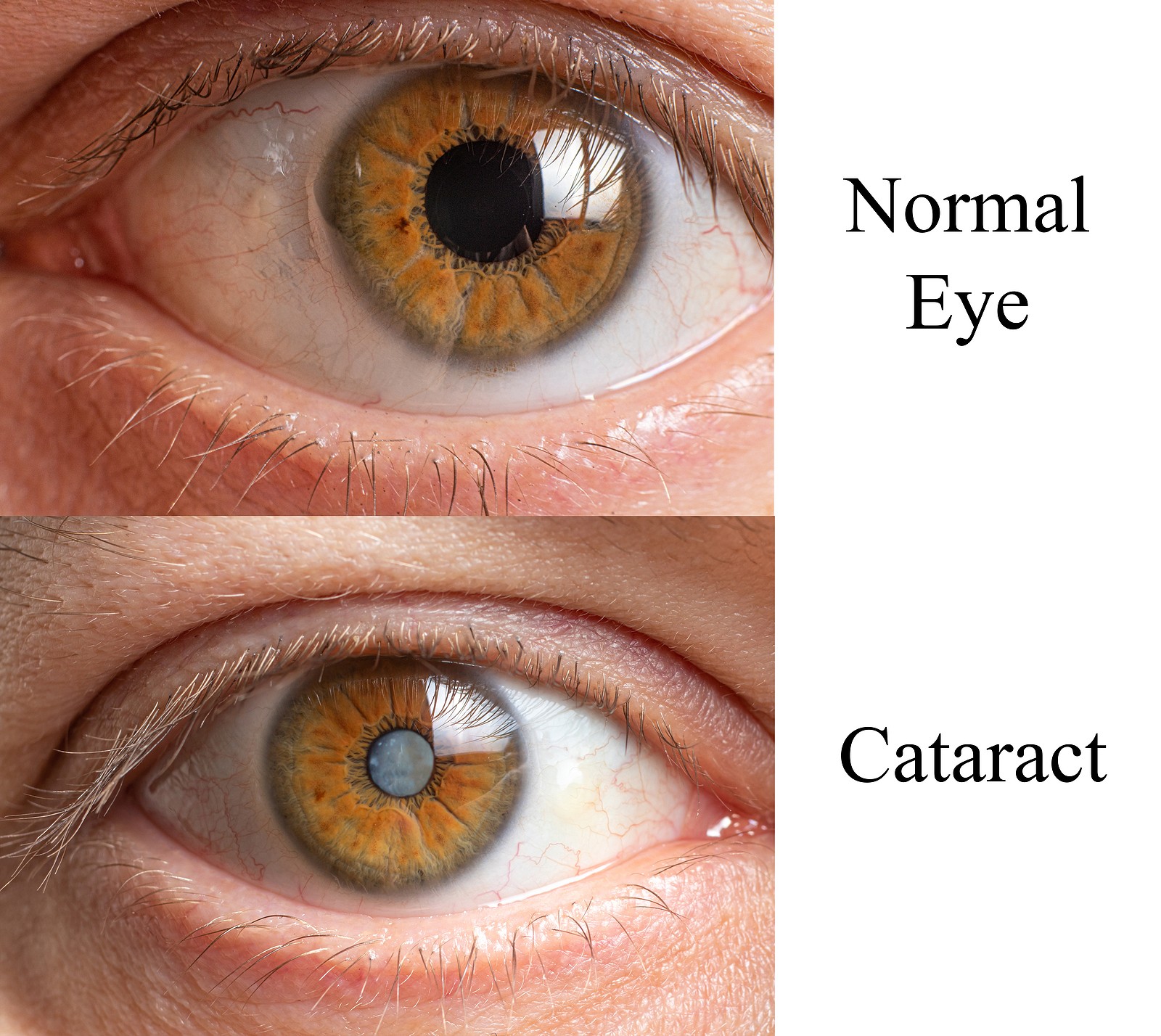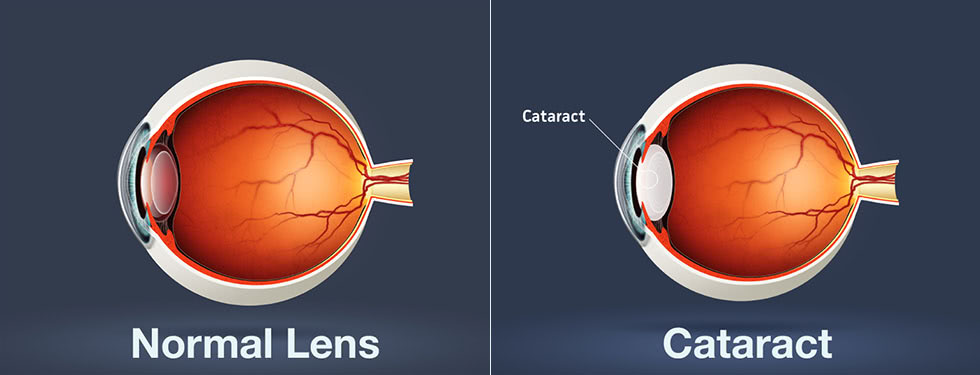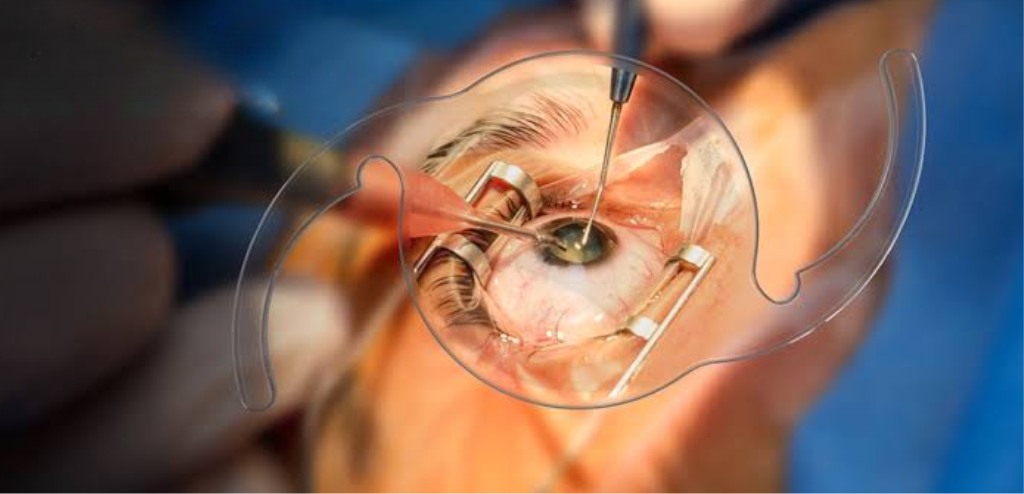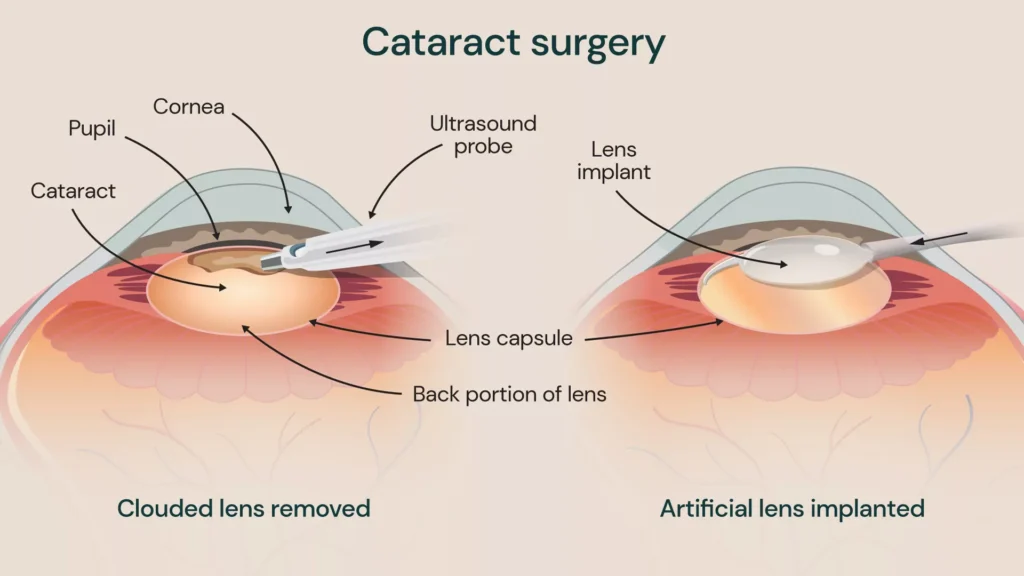Regain Your Clear Vision with SurgiPartner Advanced Cataract Surgery
Experience Brighter, Sharper Vision with Cutting-Edge Cataract Technology
Book Free Consultation
Book Free Consultation
Best Cataract Treatment in Hyderabad
Cataract surgery is a safe and highly effective procedure that removes the cloudy natural lens of the eye and replaces it with a clear artificial intraocular lens (IOL). It is the most common eye surgery performed worldwide and is designed to restore sharp, clear vision affected by cataracts. With modern techniques and advanced technology, cataract surgery offers fast recovery, improved visual clarity, and a significant boost in quality of life.


Are you experiencing cloudy vision, glare, or trouble seeing at night? You might be dealing with cataracts - one of the most common age-related eye conditions.
Clear vision = a clearer life. If everyday tasks like reading, driving, or recognizing faces have become difficult, cataract surgery can help restore your sight. At Best Cataract Treatment in Hyderabad SurgiPartner, we offer expert cataract treatment using the latest phacoemulsification techniques and premium intraocular lenses to provide customized vision correction for every patient.
With state-of-the-art facilities, advanced diagnostic tools, and a caring medical team, SurgiPartner ensures you receive the best in cataract care—from consultation to full recovery. Choose SurgiPartner for dependable cataract surgery and take a confident step toward renewed vision.
When to Consider Cataract Treatment
You may be a candidate for cataract surgery if you:
Experience cloudy, blurry, or dim vision
Have trouble seeing in low-light or bright conditions
Notice increased sensitivity to glare or halos around lights
Find colors appear faded or yellowed
Struggle with daily tasks like reading, driving, or using digital devices
Book a consultation with our cataract specialists at SurgiPartner to assess your eye health and explore your treatment options.
Symptoms and Conditions Treated by Cataract Surgery
- Cloudy Vision: A gradual loss of visual clarity and sharpness.
- Glare and Halos: Difficulty seeing in bright sunlight or night driving
- Double Vision in One Eye: Caused by light scattering in a clouded lens
- Fading or Yellowing of Colors: Colors may appear dull or muted.
- Frequent Prescription Changes: Rapid changes in glasses or lens prescriptions
Causes of Cataracts
- Aging: Most common cause, typically developing after age 50.
- Genetics: Family history may increase your risk.
- Medical Conditions: Diabetes and other health issues can accelerate cataract formation.
- Eye Injuries: Trauma or previous surgeries may contribute.
- UV Exposure & Smoking: Lifestyle and environmental factors can raise your risk.


Understanding Cataract Surgery
Cataract surgery involves the removal of the eye’s natural, clouded lens and its replacement with a clear, artificial intraocular lens (IOL). Using phacoemulsification—a modern, minimally invasive technique—a tiny incision is made, and the cloudy lens is emulsified with ultrasound waves and gently removed. The new IOL is implanted to restore clear vision, often correcting other refractive errors in the process.
Key Benefits of Cataract Surgery
Clear, Improved Vision: Sharpness and clarity restored within days
Quick, Outpatient Procedure: Surgery typically lasts 15–30 minutes
Minimal Downtime: Return to normal activities within a few days
Customizable Vision: Choose lenses that correct distance, reading, or both
Enhanced Quality of Life: Resume daily activities with renewed confidence
Why Choose SurgiPartner?
Choosing SurgiPartner means trusting your vision to advanced technology, expert surgeons, and compassionate care. Our approach to Cataract Surgery ensures crystal-clear results, minimal discomfort, and a smooth recovery experience.
01.
Expert Cataract Surgeons
Our ophthalmic specialists have successfully performed thousands of cataract surgeries using advanced lens replacement techniques for optimal vision restoration.
02.
Advanced Phaco & Laser Technology
We use next-generation phacoemulsification and femto-laser systems that provide unmatched precision, faster healing, and safer outcomes.
03.
Customized Lens Options
From monofocal to premium multifocal and toric lenses, we help you choose the perfect lens type to match your lifestyle and vision goals.
04.
Painless Procedure & Quick Recovery
Enjoy a comfortable, stitch-free experience — with most patients regaining improved vision within 24 to 48 hours.
Book Your Consultation
Take the first step toward clear, brighter vision with SurgiPartner advanced Cataract Surgery. Our specialists are committed to restoring your sight with precision, safety, and compassionate care.
“See life in a new light – that’s the SurgiPartner promise.”
Testimonial
Life After Cataract Surgery
“I can finally see everything clearly again! The cataract surgery was completely painless and bloodless. The doctors were caring and professional throughout the process.”
Frequently asked questions
What is cataract surgery?
A cataract is the clouding of the natural lens inside your eye, which leads to blurred or dim vision. It often develops slowly with age but can also result from injury, certain medications, or medical conditions like diabetes.
What are the symptoms of cataracts?
Common symptoms include blurry vision, glare or halos around lights (especially at night), faded colors, difficulty reading or driving, and frequent changes in your glasses prescription.
When should I consider cataract surgery?
You should consider surgery when cataracts start interfering with your daily activities—like reading, driving, or seeing clearly in bright or low light. If glasses no longer help, it’s time to consult an eye specialist.
Is cataract surgery safe?
Yes, cataract surgery is one of the safest and most commonly performed surgeries worldwide. It has a high success rate and is typically performed as an outpatient procedure under local anesthesia.
Will cataract surgery hurt?
No, the procedure is virtually painless. It is done under local anesthesia (eye drops or a small injection) to numb the eye, and most patients report only mild discomfort, if any.
How long does cataract surgery take?
The actual surgery usually takes about 15 to 30 minutes per eye. However, you may spend a few hours at the facility for preparation and post-operative observation.
What type of lens will be implanted in my eye?
An artificial intraocular lens (IOL) will replace the clouded natural lens. There are different types, including monofocal, multifocal, and toric lenses, depending on your vision needs. Your surgeon will recommend the best option for you.
What is the recovery time after cataract surgery?
Most people experience improved vision within 24–48 hours, with full recovery in about 1–2 weeks. You may be advised to avoid strenuous activities and eye rubbing during this period.
Will I still need glasses after surgery?
It depends on the type of lens implanted. Some patients, especially those with multifocal or premium lenses, can reduce or eliminate their dependence on glasses. Others may still need them for reading or specific tasks.
Can cataracts come back after surgery?
No, cataracts cannot return after surgery. However, some patients may develop a condition called posterior capsule opacification (PCO) months or years later, which causes cloudy vision again. This is easily treatable with a quick, painless laser procedure.
Get it Touch
Tell us about your vision concerns, and we’ll help you find the best Cataract treatment option tailored to your needs
Cataract Surgery Services Available Across Hyderabad
SurgiPartner proudly offers advanced Cataract Surgery through its extensive network of clinics and partner hospitals across Hyderabad, ensuring every patient receives world-class eye care close to home.
